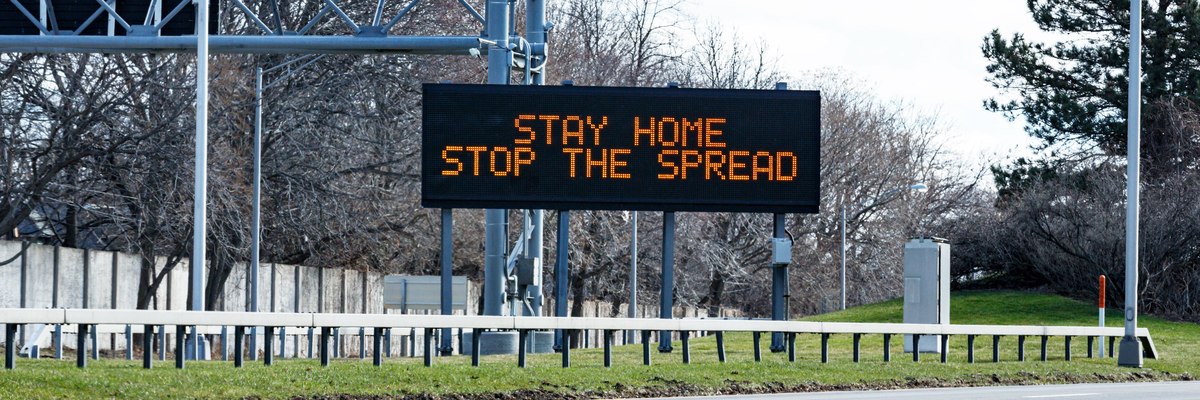As the world now knows, Britain passed a sombre milestone this week, marking the hundred thousandth death from Covid in this country. Much attention has been focused on this number, not least because in relation to the size of our population it is one of the highest Covid mortality rates in the world. Questions are rightly being asked and answers will eventually have to be given. But does concentrating simply on the overall number of deaths distract us from worrying about something that might be at least as important? Does it cast a light on our society’s underlying attitudes to death and pose questions about whether those attitudes are themselves morbid and unsustainable?
The statistics published on Tuesday showed Britain to be the fifth country, after the United States, Brazil, India and Mexico to record the number of deaths related to Covid in six figures. But those other countries have larger populations, so in terms of death per head of population, Britain is among the worst performers in the world in preventing Covid from leading to death.
Boris Johnson, said: ‘I am deeply sorry for every life that has been lost and of course as prime minister I take full responsibility for everything that the government has done. We truly did everything we could and continue to do everything that we can to minimise loss of life and suffering in what has been a very, very difficult stage and a very, very difficult crisis for our country, and we will continue to do that.’
Of course it is highly contentious to claim that the government has always done everything it could to protect people from dying of Covid. Even some of Mr Johnson’s own ministers would admit that mistakes were made, especially early on in the pandemic, although they would probably add that given the limited knowledge of the virus in those early stages, such mistakes were both understandable and inevitable. What is clear is that an official inquiry will one day have to examine the claim and provide an explanation of why a greater proportion of people died of Covid in Britain than in other countries.
It is often said that the personal is political. That means roughly that our personal behaviour, attitudes and outlook provide a better indicator of what our political positions actually are than the political views we may happen to spout. But our attitudes to death may be an exception to this rule or, if they are not, maybe they should be.
At the personal level, all death is a cause of sorrow and grief – even when it comes at a great age or is a blessed relief from suffering. There was always the next
birthday we were planning for them, the next grandchild to place on their knee, even something as simple as one more summer and the chance to look forward just to sitting out with them in the sun again. Death snatches away what always appears to be just within our grasp – that next bit of living, the thing we are here to do. It is trite but true to say that the core of being human is to live. Thus death seems the worst thing that can happen to us. It is the ultimate failure.
But step back from personal experience and the picture looks quite different. The equally trite and equally true point is that ‘we all have to go sometime’. The less often-made point, but no less basic one, is that if this were not the case the consequences would be unimaginably dire. As an elderly Indian woman once put it to me: ‘If we don’t die, there will be no room for those who are to come.’ That might not be quite the way highly sophisticated number crunchers in world demography would put it as they pit graphs of human population expansion against graphs of stretched resources, but it is nonetheless true.
So if death at a personal level is our ultimate enemy, our ultimate failure, from a wider perspective it is our salvation.
This, perhaps, is the context -- or, at the very least, one context – in which we should see this week’s 100,000 figure. And it is the age breakdown of that total figure which is relevant here. About 43% of the 100,000 people who have died were 85 or older. 75% were at least 75; and 90% were 65 or older. To put it bluntly and heartlessly, most were due to die quite soon anyway.
Of course it was terrible for them and their families that Covid took their lives sooner than would otherwise have happened. It was terrible that many of them should have died breathless and that they should have been deprived of the comfort of even seeing, let alone holding the hands of, their loved ones as they did so. And terrible that those left behind should have lost them in this way. But from that ‘other’ perspective it could be pointed out that the vast majority of the hundred thousand who died would already have lived longer than their parents, and certainly than their grandparents, did, and certainly longer than their grandparents could ever have imagined they would live. The ghosts of those grandparents might perhaps be heard muttering sardonically about ‘a good innings’. In short, from this perspective, perhaps the more proportionate response to the deaths should be regret rather than horror
To some people what should be concerning us more than the brute fact of a hundred thousand deaths is something that emerges within that statistic but may be obscured by it. Covid cost the lives of those who, simply by virtue of age, would have been expected to have very much more life left in them but who, by virtue of the circumstances in which they lived, became fatally vulnerable to it.
They include young people suffering from obesity because of bad diets and dependence on junk food and poorer people, especially in certain ethnic groups, living in overcrowded accommodation and forced to mix with potential spreaders of the virus on public transport or at work, simply because they had no alternative way to live. And the point here is not just about vulnerability to death but about susceptibility in life. If life is about living, such people have less chance to live fulfilling lives of the sort that many of the older victims of Covid had already lived.
The broader lesson from this is that while we rightly mourn the hundred thousand and rightly demand an inquiry as to why Britain has suffered so much greater a mortality rate than most other countries, our focus ought to be on living and how to improve life for everyone rather than on death and how to postpone or even prevent it.
Here again the personal and the political will be increasingly at odds as medical technology finds more and more ways to cheat death. For the individual doctor, the duty is always to keep the patient alive and for that doctor a death is always to some extent a failure. But for society that failure is necessary.
It is wholly understandable that we should want to prolong life but we must beware of what we want. My question is whether our response to the sombre milestone of a hundred thousand Covid deaths, while in many respects wholly justified, also reveals an underlying attitude to death in our society which is not quite right. What’s your view?
Let us know.










